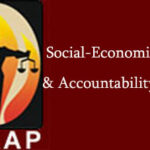The Federal Government has introduced a new policy mandating that pupils must be at least 12 years old before gaining admission into Junior Secondary School 1, following six years of primary education.
This directive is outlined in a recently launched policy document on Non-State Schools by the Federal Ministry of Education.
The document reemphasizes structured age progression across early childhood and basic education stages in both private and public institutions.
According to the Ministry, nursery education will span three years, beginning at age three. Pre-primary education, also known as Kindergarten, is expected to commence at age five, followed by admission into Primary One at age six.
“Children shall be admitted into Primary One when they attain the age of six years. Every child must complete six years of primary education. They shall be admitted into Junior Secondary School, when they have completed six years of primary education, at around the age of twelve years,” the ministry stated in the policy document.
The new guideline, if strictly implemented, means that the average Nigerian learner will turn 18 before qualifying for admission into any higher institution.
In recent years, age-related admission requirements have sparked debate. Former Education Minister, Prof. Tahir Mamman, previously proposed 18 as the minimum age for university admission. However, his successor, Dr. Maruf Tunji Alausa, later revised the benchmark back to 16 years.
The newly released policy places specific attention on Non-State Schools — also known as private or independent schools — which are not run by the government but operate with funding from fees, private donations, faith-based bodies, and other sources.
The Ministry noted that these schools are playing an increasingly significant role in the national education landscape.
“Despite the variability in the quality of education offered by these schools, they are contributing substantially to basic education provision across Nigeria,” the policy noted.
Supporting data from the Nigeria Education Digest 2022 revealed that Non-State Schools now outnumber public schools in 26 states at the Junior Secondary level. At the primary level, government-owned schools remain dominant in 19 states.
Between 2017 and 2022, the growth of Non-State Schools significantly outpaced that of state-run schools. The number of private primary schools rose by 31.56 percent, compared to just 3.3 percent growth in public schools. At the Junior Secondary level, the growth was 35.06 percent for private schools versus 6.8 percent for public schools during the same period.







